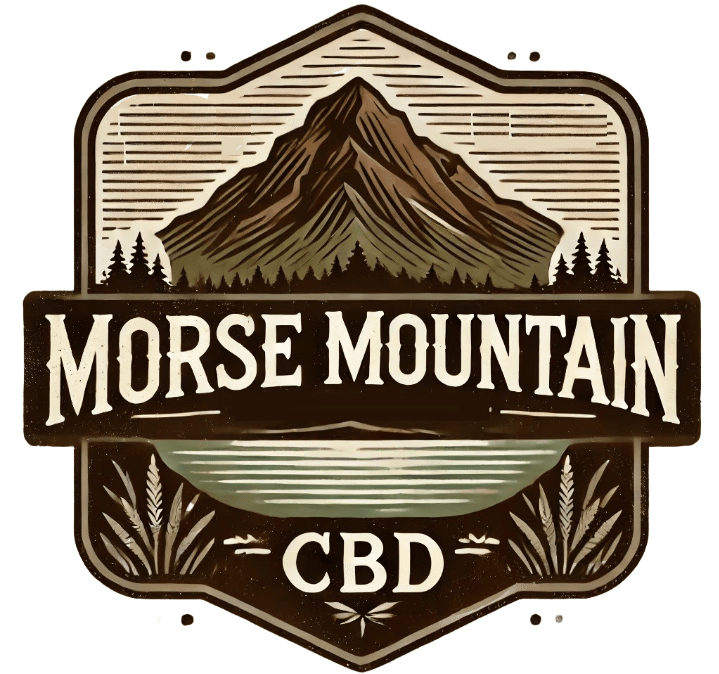
Understanding CBD for Eczema
Exploring CBD for Eczema? Tips for Consultation.
When it comes to CBD and eczema, it’s essential to arm yourself with accurate info before speaking to your doctor. Ask them specific questions about their experience prescribing such products and their views on the potential benefits.
Be prepared to describe your symptoms and how they have impacted your life. If any family/friends have had success with CBD, share that too.
Pro Tip: Research and compile reputable sources on CBD-containing products in your area and provide them to your doctor. This will ensure you know as much as possible about managing eczema.
CBD offers promising anti-inflammatory properties, making it an enticing option for eczema sufferers.
Benefits of CBD for Eczema
CBD, a cannabinoid found in cannabis plants, is a natural alternative to traditional medications for eczema. It is known for its anti-inflammatory properties which can reduce redness, irritation and swelling. It can also help regulate the immune system and moisturize the skin. Topical CBD products such as creams and balms can soothe the skin and provide targeted relief.
Another unique aspect of CBD is that it can be used both topically and orally. Jane is an example of someone who had great success with this approach. After speaking with her doctor about using various forms of CBD, she noticed a significant improvement in her skin’s quality and a reduction in inflammation.
If you are looking for an alternative treatment for eczema, speak to your dermatologist about the potential benefits of CBD. Skip the small talk and get straight to the itch-scratching subject.
Talking to Your Doctor About CBD for Eczema
To talk to your doctor effectively about CBD for eczema, you need to be informed and well-prepared. In order to have a productive conversation, it’s important to know what to look for in a CBD product, how to discuss dosage with your doctor, and the potential side effects and risks. Additionally, you may need to consider taking CBD in combination with other medications, which requires careful consideration and consultation with your doctor.
What to Look for in a CBD Product
When shopping for CBD, there are a few things to keep in mind. A good selection can influence the benefits you’ll get. Here are some tips:
- Brand: Choose a well-known name and make sure they give out info on their products.
- Extraction Method: CO2 extraction is safest when it comes to toxins.
- Full or Broad-Spectrum: Full-spectrum has all cannabinoids while broad-spectrum doesn’t have THC—choose based on your needs.
- Potency: Check dosing info and potency levels on the label. High amounts may be bad.
- Certificate of Analysis (COA): Pick products with third-party verified reports to check quality and purity.
- Ingredients: Beware of allergens and other allergy triggers.
Doing research is important, but don’t rely on these tips alone. Find out more about the company and read customer feedback.
It’s also wise to talk to your doctor before trying CBD. It may interfere with meds or worsen conditions like liver issues.
CBD became popular over 60 years ago when Dr. Raphael Mechoulam’s team tested it on lab animals. They noticed changes in behavior due to the psychoactive properties of cannabinoids. Nowadays, CBD is becoming more and more popular due to its therapeutic effects, like reducing pain from inflammation, anxiety, and stress.
Discussing Dosage with Your Doctor
It’s important to work with your doctor to figure out the right dosage of CBD for eczema. Consider different forms of application, and how factors like body weight, type of eczema, and symptom severity can impact dosage.
Your doctor will take into account your medical history, current medications, and potential drug interactions before recommending CBD oil. Ask about side effects and contraindications related to using CBD with other medications. This will help you make the best decision when it comes to using CBD for treatment.
A few clinical studies have found that topical CBD may be beneficial for skin health. A 2019 article reported that CBD may be useful for acne vulgaris, psoriasis, dermatitis, and pruritus. However, more research is needed to understand how it affects different types of eczema.
La Clinica Dermatologica e Tricologica in Italy recently discovered that a cream containing cannabidiol (CBD) improved signs and symptoms of atopic dermatitis in patients after two weeks of use.
The only risk of consulting with your doctor about CBD for eczema is them suggesting ‘just moisturize more’.
Possible Side Effects and Risks
CBD for Eczema: Side Effects and Risks
CBD oil isn’t risk-free – take precautions before using it to treat eczema. Dizziness, dry mouth, nausea, diarrhea, appetite changes and fatigue are all potential side effects. Before trying CBD, understand the benefits and dangers.
A table can explain potential side effects of CBD oil better. Here’s an example:
| Side Effect | Likelihood |
|---|---|
| Dry Mouth | High |
| Nausea | High |
| Dizziness | Medium |
| Diarrhea | Low |
It’s important to note that CBD can have a sedating effect on some people. Plus, if you alter dosages without consulting a doctor, it can lead to unwanted side effects. So, always use CBD under medical supervision.
When using CBD oil for eczema, seek advice from a medical professional. It may take time to find the right dosage for you.
Be aware of the risks of self-medication – speak to a medical professional.
Roll the dice and try CBD with other medications – you might be surprised!
Taking CBD in Combination with Other Medications
When combining CBD with other medications, it is wise to inform your doctor. They can adjust the dosage and watch for any drug interactions. Side effects may vary depending on age, weight, and medical conditions. Start at a lower dose to monitor how it affects you.
Be aware that some medications, such as antibiotics and blood thinners, have negative reactions with CBD. Before making changes, always consult your doctor for personalized advice.
A study published in the Journal of Clinical Pharmacy and Therapeutics in 2017 showed promising results in reducing seizures caused by refractory epilepsy for patients taking multiple medications including antiepileptics and benzodiazepines.
Preparation for the Doctor’s Appointment
To prepare for your doctor’s appointment about CBD for eczema, gathering information about CBD and eczema, bringing up CBD during the appointment, and addressing concerns and questions from your doctor are all important steps. By following these sub-sections, you can have a productive conversation with your healthcare provider to determine if CBD is a suitable treatment option for your eczema.
Gathering Information about CBD and Eczema
Gathering info on CBD and its effectiveness in treating eczema is essential before visiting a doctor. Learn the potential benefits and side effects to make informed decisions. Research various sources, like authoritative medical literature or reputable websites, for reliable info on CBD’s effectiveness.
Check the legal status of CBD in your state before using it for medicinal purposes. Some states prohibit its use or have stringent regulations. Consulting a licensed physician on legality and suitability of using CBD for eczema is advisable.
Individual’s experience with eczema is unique. Consulting a healthcare professional who knows your medical history and condition can be beneficial. They can provide insights on natural remedies like CBD oil while exploring traditional treatment options.
Sharing experiences of others who benefited from using CBD is helpful. But, anecdotal evidence should not be a substitute for expert medical advice. Doctors understand skin issues like eczema better and can prescribe treatments that suit individual conditions.
Bringing up CBD during the Appointment
When discussing CBD with your doctor, it’s important to be respectful and informed. Mention any research you did and ask questions about potential interactions with other medications or conditions.
Be open-minded and listen to your doctor’s advice. They can give insight into potential risks and benefits related to your health.
Open communication and honesty are key for both you and your doctor to agree on a treatment plan.
It’s important to remember that while some studies show promising health benefits of CBD, more research is needed to understand its effects.
So speak up! Ask your doctor those embarrassing questions – it’s not the time to be shy.
Addressing Concerns and Questions from Your Doctor
Your doc’s appt can be intense. Put down your queries before you go so you can address all your concerns. Don’t use medical terms so the doc can understand you. Listen to any instructions they give and answer their questions honestly and openly. Disclose personal info like meds, allergies, etc. so they can have a clear understanding of your needs.
Harvard Health says 23% of outpatient visits in America have antibiotics prescribed, despite new guidelines from leading antibiotic orgs. And if all else fails, blame your spouse’s cooking!
Conclusion and Next Steps
Discuss potential pros and cons of CBD for eczema with your doc. Next, do research on reliable sources and the legality of CBD products in your area. Plus, talk with a medical expert about the right dosage and how to take it.
Severe or long-term symptoms? See a dermatologist or specialist. And, keep track of any changes after taking CBD. Tell your doctor about them.
CBD helps with eczema, but it’s not a cure-all. To improve symptoms, reduce stress, avoid triggers, follow a healthy diet, and practice good skincare.

